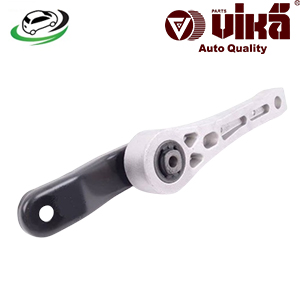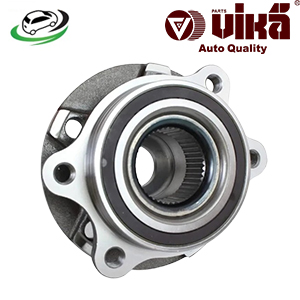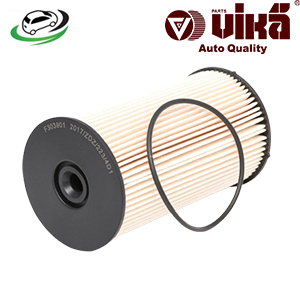-13%
Get Fuel Filter Audi A3 8P/TT 8J / Volkswagen Eos 1F/Tiguan 5N/Passat 3C/Caddy Mk3 3C0127434
A fuel filter is an essential component of a vehicle’s fuel system, designed to protect the engine by ensuring that the fuel entering it is clean and free from contaminants. Over time, the fuel filter becomes crucial in maintaining engine performance and longevity. Here’s a comprehensive overview of the fuel filter, including its function, types, benefits, maintenance, and common issues.
Purpose of a Fuel Filter
Contaminant Removal
The primary function of a fuel filter is to remove impurities such as dirt, rust, and debris from the fuel before it reaches the engine. These contaminants can come from various sources, including fuel tanks, fuel lines, and even during the fuel delivery process.
Protecting Engine Components
By filtering out these contaminants, the fuel filter protects sensitive engine components such as the fuel injectors, fuel pump, and combustion chambers. Clean fuel ensures that these parts function properly and efficiently.
Components of a Fuel Filter
- Filter Element: The core of the fuel filter, the filter element, is made of a porous material such as paper, synthetic fiber, or metal mesh. It captures and holds contaminants as the fuel passes through it.
- Filter Housing: The filter housing encloses the filter element and provides a structure for attaching the filter to the fuel system. It is typically made of metal or durable plastic.
- Inlet and Outlet Ports: These are the connections where fuel enters and exits the filter. Proper sealing at these ports is crucial to prevent leaks and ensure efficient filtration.
- Bypass Valve: Some fuel filters are equipped with a bypass valve that allows fuel to bypass the filter element if it becomes clogged. This ensures that fuel flow continues, though it may not be as clean.
Types of Fuel Filters
- Inline Fuel Filters
- Location: Positioned along the fuel line between the fuel tank and the engine.
- Function: Filters fuel before it reaches the fuel pump or injectors.
- Common Use: Often used in older or simpler fuel systems.
- Cartridge Fuel Filters
- Location: Typically found within the fuel filter housing, which is mounted on the engine or fuel line.
- Function: Replaces the filter element inside the housing while reusing the existing housing.
- Common Use: Common in modern vehicles with complex fuel systems.
- Fuel Filter/Water Separator
- Location: Usually found in diesel engines.
- Function: Combines a fuel filter with a water separator to remove water from the fuel, which can be particularly important in diesel engines where water contamination can cause serious issues.
- Fuel Pump Module Filter
- Location: Integrated into the fuel pump module within the fuel tank.
- Function: Filters fuel before it is pumped to the engine.
- Common Use: Common in modern vehicles where the fuel pump and filter are part of a single unit.
Benefits of a High-Quality Fuel Filter
- Enhanced Engine Performance
- Improved Combustion: Clean fuel ensures better combustion efficiency, leading to smoother engine operation and improved throttle response.
- Optimal Power Output: Proper filtration helps maintain optimal engine power and acceleration.
- Extended Engine Life
- Reduced Wear: By preventing contaminants from reaching sensitive engine components, a high-quality fuel filter reduces wear and tear on parts such as fuel injectors and the fuel pump.
- Prevents Damage: Protects the engine from damage caused by impurities that could lead to costly repairs or replacements.
- Better Fuel Efficiency
- Efficient Combustion: Clean fuel burns more efficiently, contributing to better fuel economy and reducing the frequency of refueling.
- Prevents Clogs: Prevents clogs in the fuel system that can cause fuel flow issues and decrease efficiency.
- Reduced Emissions
- Cleaner Combustion: Clean fuel leads to more complete combustion, resulting in fewer emissions and a cleaner running engine.
- Environmental Benefits: Reduces the environmental impact of the vehicle by minimizing harmful exhaust emissions.
- Improved Reliability
- Consistent Operation: Ensures consistent engine performance and reliability by preventing fuel system issues.
- Prevents Stalling: Helps avoid stalling and rough idling caused by fuel contamination.
Maintenance of a Fuel Filter
- Regular Replacement
- Manufacturer’s Recommendations: Follow the manufacturer’s guidelines for fuel filter replacement intervals, which are often specified in the vehicle’s owner’s manual.
- Typical Intervals: Many vehicles require a fuel filter change every 20,000 to 30,000 miles, though this can vary depending on driving conditions and fuel quality.
- Inspection
- Check for Leaks: Regularly inspect the area around the fuel filter for signs of fuel leaks.
- Monitor Performance: Pay attention to changes in engine performance, such as rough idling or decreased acceleration, which could indicate a clogged filter.
- Professional Servicing
- Periodic Checks: Have the fuel filter inspected by a professional mechanic during routine maintenance or service appointments.
- Fuel System Cleaning: Consider having the entire fuel system cleaned periodically to ensure optimal performance.
Common Issues with Fuel Filters
- Clogging
- Symptoms: Reduced engine performance, difficulty starting, and stalling can be signs of a clogged fuel filter.
- Cause: Over time, the filter element accumulates contaminants, leading to reduced fuel flow.
- Leaks
- Symptoms: Fuel leaks around the filter or fuel lines can cause a noticeable fuel smell or puddles under the vehicle.
- Cause: Leaks can occur due to damaged seals, cracked housing, or loose connections.
- Bypass Valve Failure
- Symptoms: If the bypass valve fails, it may cause fuel flow issues even if the filter is clogged.
- Cause: A malfunctioning bypass valve can lead to decreased engine performance and potential damage.
- Contaminated Fuel
- Symptoms: Poor engine performance and frequent filter clogging may be caused by contaminated or low-quality fuel.
- Cause: Contaminants in the fuel can clog the filter more quickly and cause engine issues.
Follow us on Facebook for more parts.





